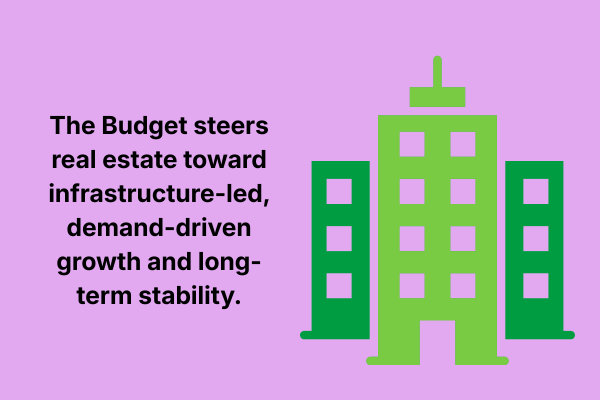The United Kingdom and India are on the verge of finalizing a long-negotiated Free Trade Agreement (FTA), a deal that could redefine their economic partnership. While both nations stand to gain, Britain—more than India—is in urgent need of this agreement. In a post-Brexit landscape marked by sluggish growth and deteriorating trade ties with the European Union, securing preferential access to India’s dynamic market is no longer a strategic luxury—it is an economic necessity.
Post-Brexit Economic Reality: The UK’s Diminishing Trade Influence
Britain’s departure from the European Union has left a significant dent in its global trade standing. The Office for Budget Responsibility (OBR) projects that Brexit will shrink the UK’s GDP by approximately 4% in the long run, primarily due to weakened trade and investment flows. The European Union, once the UK’s largest trading partner, has become a more complex and costly market to access. With British businesses grappling with supply chain disruptions, non-tariff barriers, and declining investor confidence, the UK government has been forced to seek alternative trade deals to mitigate these losses.
Enter India, the world’s fastest-growing major economy and a rapidly expanding consumer market. The UK-India FTA is being positioned as a game-changer, but Britain needs this deal far more than India does.
A Market the UK Cannot Afford to Ignore
India’s economic trajectory is nothing short of remarkable. Expected to overtake Japan and Germany to become the world’s third-largest economy by 2028, India maintains an enviable 6-7% annual GDP growth rate. With a burgeoning middle class and rising disposable incomes, demand for high-quality goods and services is at an all-time high.
For the UK, gaining unrestricted access to this market could revitalize its struggling export sector. Currently, British businesses face prohibitive tariff barriers in India—for instance, Scotch whisky, one of Britain’s most lucrative exports, is subject to a 150% tariff, while automobiles, machinery, and industrial goods also face high duties. The FTA provides a crucial opportunity to reduce these barriers and unlock billions in potential exports.
Strategic Advantage for UK Services and Investment
The UK is not just a goods exporter—it is a global leader in financial services, education, and digital innovation. India, with its growing tech ecosystem and rising demand for financial and legal expertise, presents a significant opportunity for British service sector firms. An FTA that facilitates UK participation in India’s banking, insurance, and professional services sectors could help revitalize London’s financial hub, which has struggled to maintain its global standing post-Brexit.
Furthermore, India is already a major investor in the UK, supporting over 600,000 jobs through companies like Tata Consultancy Services (TCS), Infosys, and Wipro. A streamlined investment regime under the FTA could deepen economic ties and encourage greater Indian capital inflows, reinforcing the UK’s position as a preferred destination for Indian businesses looking to expand into Europe.
The EU Factor: A Race Against Time
Britain is not the only player seeking closer trade ties with India. The European Union has already resumed its own trade negotiations with India, and should Brussels finalize a deal first, UK exporters could find themselves at a competitive disadvantage. The EU’s larger market size and existing preferential trade frameworks mean that India could prioritize deeper integration with Europe, leaving British firms struggling to compete.
If the UK delays further, its negotiating leverage will weaken, and India may no longer consider Britain a priority market.
Immigration, Mobility, and Fairness in Trade
One of the most complex areas of negotiation has been India’s demand for greater mobility for its skilled professionals. While the UK has taken a cautious approach due to domestic political concerns, there is an opportunity to establish a balanced and constructive resolution. A sector-specific visa framework in IT, healthcare, and engineering could ensure mutual benefits while addressing concerns over unrestricted immigration.
However, India must insist that any trade agreement includes a strong commitment to fairness, equity, and non-discrimination. It is no secret that Indian professionals and businesses in the UK have faced racism, color-based discrimination, and unfair treatment in hiring, business partnerships, and regulatory decisions. A cooperative framework on non-discrimination in trade and investment would help safeguard the interests of Indian businesses, workers, and entrepreneurs operating in the UK.
This framework should include:
✔ Legal and institutional commitments to combat racism and color-based discrimination against Indian professionals in UK workplaces.
✔ Stronger protections for Indian entrepreneurs and businesses to ensure fair treatment in trade regulations, contract enforcement, and market access.
✔ A mechanism for reporting and addressing discriminatory practices, ensuring that trade and investment partnerships remain inclusive and merit-based.
✔ Equal opportunities for Indian students, professionals, and business owners, particularly in sectors where India has a strong presence (technology, medicine, academia, and finance).
The UK has long benefited from Indian talent, investments, and entrepreneurship, with over 900 Indian-owned businesses operating in Britain, generating billions in revenue and supporting thousands of jobs. It is only fair that Indian enterprises and professionals receive equal opportunities and protection from racial and color-based discrimination.
By embedding a non-discriminatory trade cooperation framework, the UK and India can set a global precedent for ethical trade agreements, ensuring that economic partnerships are built on fairness, inclusion, and equal opportunities.
Sealing the Deal: Britain’s Moment of Reckoning
The UK-India FTA represents a defining moment for Britain’s post-Brexit trade policy. The stakes are high: failure to conclude this agreement would not only cost the UK valuable market access but also damage its credibility as a serious global trading partner. With the EU accelerating its negotiations, Britain cannot afford to delay.India has alternatives. The UK does not. The time for hesitation is over—London must act decisively to secure this agreement before it is too late.
Author Profile

-
Perumal Koshy is Editor of Global SME News and Director of Strategic Initiatives at Enterprise Futures Lab. He writes on MSMEs, enterprise development, and policy issues affecting small business ecosystems.
Linkedin: https://www.linkedin.com/in/caushie/
Latest entries
 FEATURED2 February 2026Outlook 2026 | Real Estate: Infrastructure-Led Growth, Integrated Communities, and the Trust Imperative
FEATURED2 February 2026Outlook 2026 | Real Estate: Infrastructure-Led Growth, Integrated Communities, and the Trust Imperative Entreprenurs30 January 2026Quality, Crisis, and Consistency: The Rungta Tea Story
Entreprenurs30 January 2026Quality, Crisis, and Consistency: The Rungta Tea Story Entreprenurs21 August 2025Entrepreneurship, Values, and Corporate Governance: Building Nations, Not Just Profits
Entreprenurs21 August 2025Entrepreneurship, Values, and Corporate Governance: Building Nations, Not Just Profits Africa13 August 2025 A New Landmark Report Calls for Rethinking SME Policies, Digital Readiness, and Sustainable Growth
Africa13 August 2025 A New Landmark Report Calls for Rethinking SME Policies, Digital Readiness, and Sustainable Growth








